
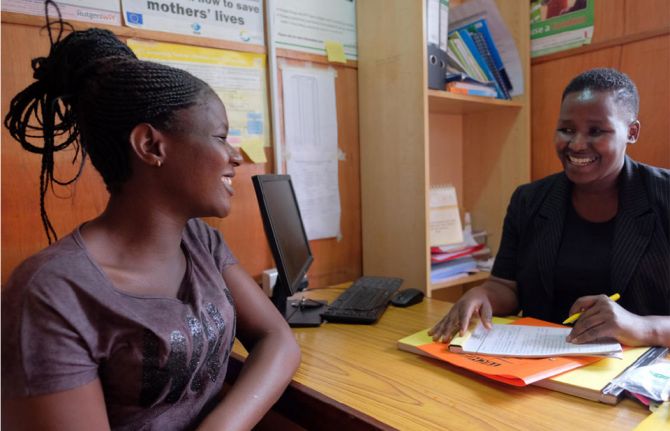
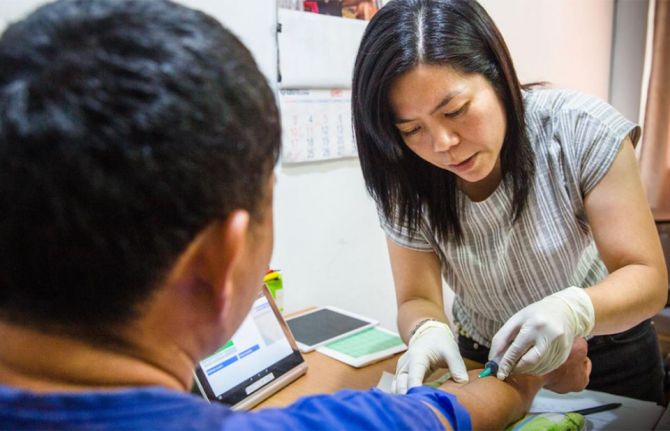
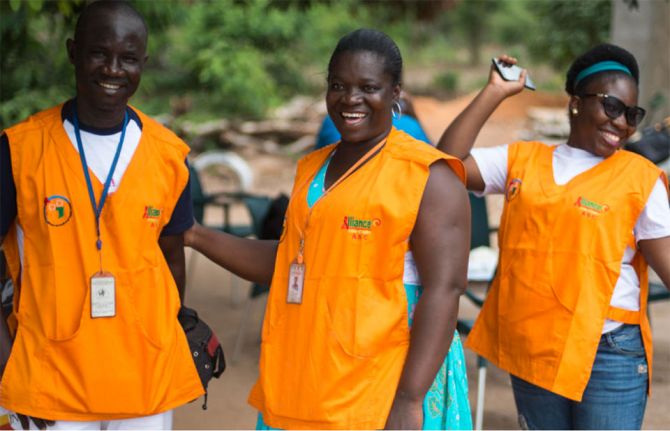
Press Statement
Expand HIV services to power gains across health, urges new report
15 April 2024 15 April 2024WASHINGTON/GENEVA, 15 April 2024—A new report released today by UNAIDS and Friends of the Global Fight Against AIDS, Tuberculosis and Malaria shows how countries are leveraging their HIV responses to both ensure impact on the HIV response and also to improve broader national health and well-being. The report finds that investing now to end AIDS as a public health threat by 2030 will not only follow through on the commitment to end the pandemic but also magnify the broader health benefits of HIV specific investments.
The report, Expanding the HIV response to drive broad-based health gains, profiles country examples from Colombia, Côte D’Ivoire, Jamaica, South Africa, Thailand and Uganda. Experiences in these six countries indicate that strengthened HIV responses have contributed to broader health benefits. Far from being in isolation, HIV treatment, prevention and care programmes are also helping to build more robust health systems that enhance access to people-centred care and bolster pandemic preparedness.
For example, the integration of HIV and non-HIV specific services is increasing access to holistic, comprehensive health services needed for people living with and affected by HIV. In Côte d’Ivoire, Jamaica, South Africa and other countries, service platforms originally developed to respond to HIV are leveraged to provide a broad range of health services, including prevention, screening and treatment of noncommunicable diseases.
HIV care is inspiring models of care in other areas. In Colombia, a model of care specifically developed for HIV is now being used for the provision of comprehensive, coordinated care for other chronic diseases, including diabetes, cancer and cardiovascular diseases.
Health system components strengthened through HIV investments are also improving a wide array of health outcomes in addition to those related to HIV and AIDS. In Côte D’Ivoire, laboratory systems strengthened through HIV investments are contributing to diagnostic services for multiple health issues, including maternal and child health, tuberculosis, viral hepatitis and COVID-19.
As progress lags in achieving many of the health targets of the Sustainable Development Goals, efforts to end AIDS stand out as a beacon of hope. Since 2010, annual new HIV infections and AIDS-related deaths have declined globally by 38% and 51%, respectively.
Angeli Achrekar, Deputy Executive Director of Programmes at UNAIDS, said “This report highlights the need for more purposeful efforts by countries to identify and capitalize on ‘win-win’ opportunities that efficiently and effectively increase the reach of health services to accelerate progress towards ending AIDS as a public health threat by 2030 and to reach other health-related Sustainable Development Goals.”
The report concludes with a series of recommendations to further leverage the wider health benefits through increased and sustained HIV investments. It says that particular attention is required to maintain and further strengthen investments in robust, sustainable community networks of people living with HIV and key populations, including networks led by women and young people.
Chris Collins, President and CEO of Friends of the Global Fight, said: “The HIV response is a force for multistakeholder engagement, human rights-based programming, community leadership and constant innovation. These are strengths we need to bring to health services more broadly, including pandemic preparedness and Universal Health Coverage. But this catalytic role for the HIV response is only possible if governments, donors and communities invest adequately and commit to accelerated progress against HIV.”
To join the April 16 (09:00 ET/15:00 CET) webinar highlighting the report findings, please register here.
Thank you to the Elton John AIDS Foundation for its support of this project.
Friends of the Global Fight
Friends of the Global Fight Against AIDS, Tuberculosis and Malaria advocates for U.S. support of the Global Fund, and the goal to end the epidemics of AIDS, tuberculosis and malaria. For more information about Friends of the Global Fight, visit www.theglobalfight.org.
UNAIDS
The Joint United Nations Programme on HIV/AIDS (UNAIDS) leads and inspires the world to achieve its shared vision of zero new HIV infections, zero discrimination and zero AIDS-related deaths. UNAIDS unites the efforts of 11 UN organizations—UNHCR, UNICEF, WFP, UNDP, UNFPA, UNODC, UN Women, ILO, UNESCO, WHO and the World Bank—and works closely with global and national partners towards ending the AIDS epidemic by 2030 as part of the Sustainable Development Goals. Learn more at unaids.org and connect with us on Facebook, Twitter, Instagram and YouTube.

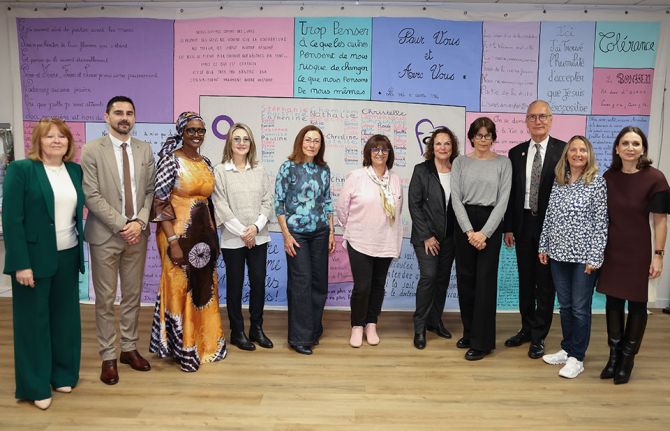
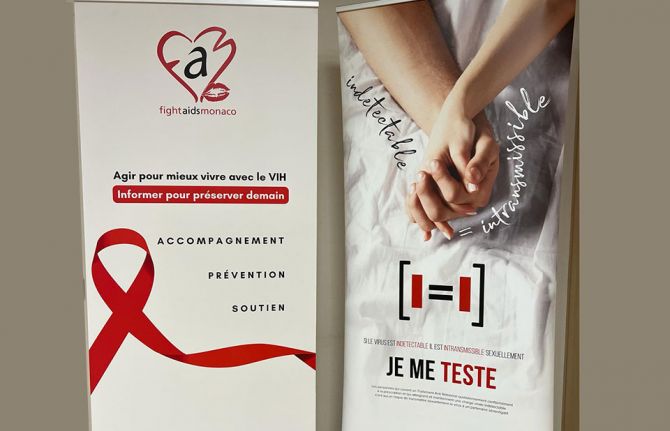
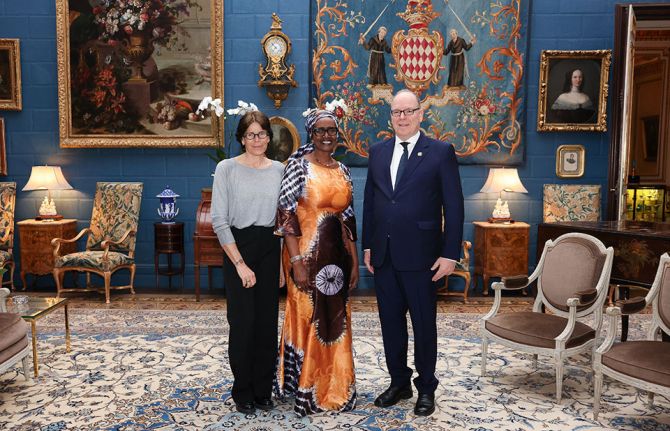
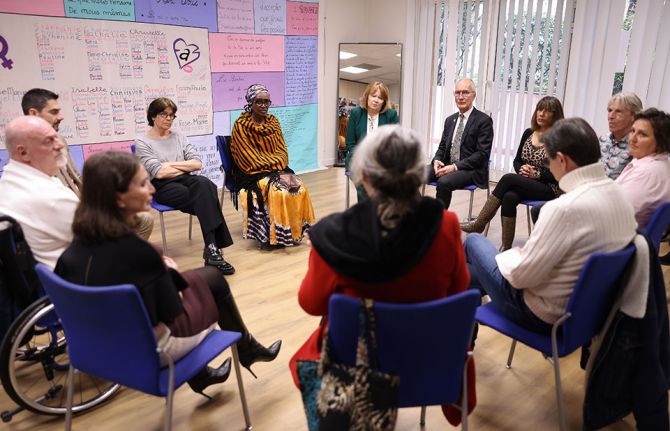
Press Statement
Monaco Principality renews its collaboration with UNAIDS
11 April 2024 11 April 2024GENEVA/MONACO, 11 April 2024— Winnie Byanyima, the Executive Director of UNAIDS—the organization leading the global fight against AIDS—met with HSH Prince Albert II of Monaco and HSH Princess Stéphanie of Monaco and government officials to strengthen Monaco’s collaboration with UNAIDS.
“Monaco is a long-standing and valued partner of UNAIDS. We continue to work together on our broad programme and also in key countries,” said Ms Byanyima. “What we particularly value is how Monaco shows such innovation in fighting HIV, and we learn from each other.”
During a visit to the Fight AIDS Monaco Association, Ms Byanyima and HSH Princess Stéphanie and Ms Byanyima met with volunteers, staff and members of the Association. Fight AIDS Monaco, founded in 2004 by Princess Stéphanie, supports people living with and affected by HIV in Monaco and the neighbouring area. They also fund projects in Madagascar, Burundi, South Africa, Mauritius, and more exceptionally Ukraine, Lebanon and Morocco.
“My heartfelt congratulations to the Fight AIDS Monaco team, celebrating your 20th year – an important milestone- and one that shows your sustained commitment to ending AIDS,” said Ms Byanyima. “It is organizations like yours that make a difference for people’s overall well-being: a safe space to share, kindness and compassion when it is most needed.”
As they gathered around an AIDS memorial quilt, Princess Stéphanie said, “We are a small country, but we can achieve great things.” She then added, “Our foundation is a place where everyone is treated with dignity and without judgement. Fight AIDS Monaco is about giving life.”
Ms Byanyima also thanked Princess Stéphanie for her unwavering engagement as a UNAIDS Goodwill Ambassador and expressed her appreciation for the Princess’s work to address HIV-related stigma and discrimination.
Despite huge progress in the HIV response, globally AIDS still claimed a life every minute in 2022. Monaco’s Minister of Social Affairs and Health, Christophe Robino, stressed that his government’s low cases of new HIV infections was a victory but one not to be taken for granted.
“This is a cause that we need to tackle daily and one day we will be able to end AIDS but we must keep talking about it while it still exists,” Mr Robino said.
Since 1988, Monaco has been implementing an integrated policy on ending HIV as a public health threat. The policy has resulted in free, anonymous HIV screening centres as well as prevention and testing campaigns in schools and businesses.
Earlier during her visit, Ms Byanyima had a working meeting with representatives from the Monegasque government and Fight AIDS Monaco.
Isabelle Berro Amedei, Minister of External Relations and Cooperation said, “Health is one of Monaco’s priorities and that includes the fight against HIV in partner countries. We lead cooperation efforts to support countries where HIV prevalence is high like South Africa, Madagascar and Mozambique.”
Monaco signed a framework agreement with UNAIDS in 2007 and has provided support for UNAIDS work in Haiti (2010-2013), Burundi (2014-2016) and South Africa since 2017. The government of Monaco, Fight AIDS Monaco and UNAIDS vowed to continue their close collaboration on ending AIDS and reiterated their commitment to the Global AIDS Strategy 2021-2026 focusing on ending inequalities to end AIDS.
UNAIDS
The Joint United Nations Programme on HIV/AIDS (UNAIDS) leads and inspires the world to achieve its shared vision of zero new HIV infections, zero discrimination and zero AIDS-related deaths. UNAIDS unites the efforts of 11 UN organizations—UNHCR, UNICEF, WFP, UNDP, UNFPA, UNODC, UN Women, ILO, UNESCO, WHO and the World Bank—and works closely with global and national partners towards ending the AIDS epidemic by 2030 as part of the Sustainable Development Goals. Learn more at unaids.org and connect with us on Facebook, Twitter, Instagram and YouTube.
FIGHT AIDS MONACO
Founded in 2004 by Princess Stéphanie of Monaco, Fight AIDS Monaco is a non-profit organization that helps people living with HIV. It also raises awareness about HIV prevention in schools and supports access to treatment and services in countries like Madagascar, Burundi, Mauritius and Ukraine.
Contact
UNAIDS GenevaCharlotte Sector
tel. +41 79 500 8617
sectorc@unaids.org
Fight AIDS Monaco
Elodie Perisi
tel. +377 97 70 67 97
com@fightaidsmonaco.com

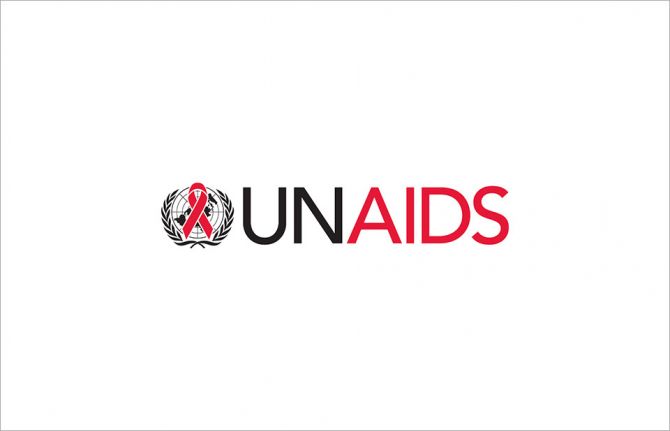
Press Statement
UNAIDS notes the judgment of the Constitutional Court of Uganda which has struck down certain parts of the Anti-Homosexuality Act, 2023
03 April 2024 03 April 2024GENEVA/JOHANNESBURG, 3 April 2024—The Constitutional Court of Uganda has today struck down certain sections of the Anti-Homosexuality Act, 2023.
“The Constitutional Court of Uganda made a judgment today to strike down certain sections of the Anti-Homosexuality Act, 2023. Evidence shows that criminalizing populations most at risk of HIV, such as the LGBTQ+ communities, obstructs access to life-saving health and HIV services, which undermines public health and the overall HIV response in the country,” said Anne Githuku-Shongwe, UNAIDS Regional Director for Eastern and Southern Africa. “To achieve the goal of ending the AIDS pandemic by 2030, it is vital to ensure that everyone has equal access to health services without fear."
UNAIDS
The Joint United Nations Programme on HIV/AIDS (UNAIDS) leads and inspires the world to achieve its shared vision of zero new HIV infections, zero discrimination and zero AIDS-related deaths. UNAIDS unites the efforts of 11 UN organizations—UNHCR, UNICEF, WFP, UNDP, UNFPA, UNODC, UN Women, ILO, UNESCO, WHO and the World Bank—and works closely with global and national partners towards ending the AIDS epidemic by 2030 as part of the Sustainable Development Goals. Learn more at unaids.org and connect with us on Facebook, Twitter, Instagram and YouTube.
Region/country

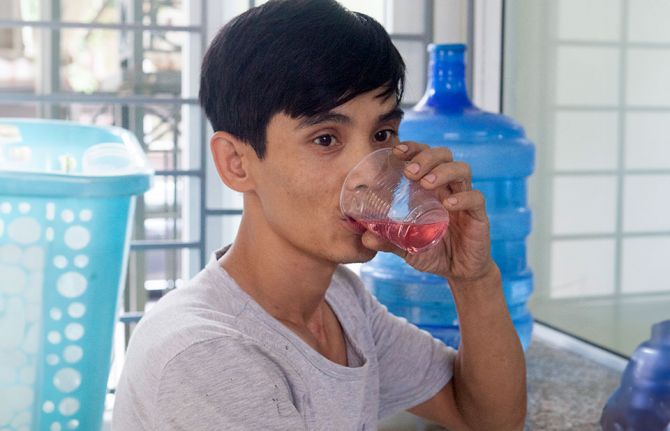
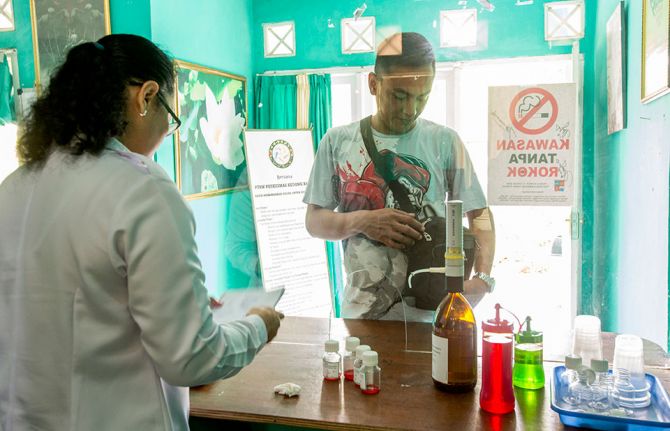
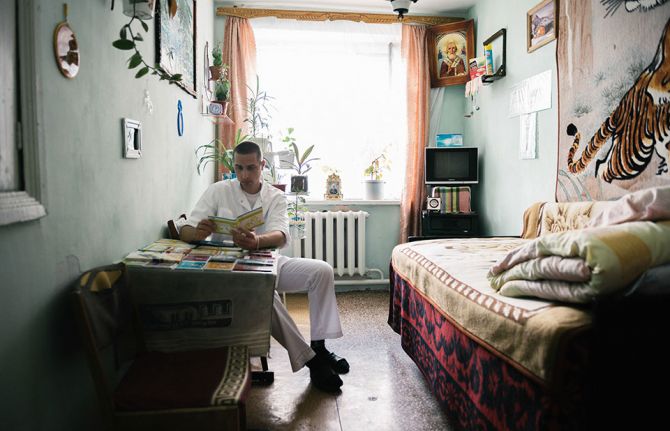
Press Statement
UNAIDS welcomes the adoption of a crucial resolution recognizing harm reduction measures at the UN Commission on Narcotic Drugs
22 March 2024 22 March 2024VIENNA/GENEVA, 22 March 2024— UNAIDS welcomes the adoption of a key resolution today at the 67th session of the United Nations Commission on Narcotic Drugs (CND), recognizing harm reduction for the first time as an important part of an effective public health response. The resolution encourages member states to develop and implement harm reduction measures to minimize the adverse public health and social consequences of the non-medical use of illicit drugs. UNAIDS congratulates the CND and the CND Chair for this historic milestone.
The resolution represents a landmark in political commitment to a rebalancing of drug policy towards a public health approach. Such a shift is critical to meeting the targets in the 2021-2026 Global AIDS Strategy.
Harm reduction is a “a comprehensive package of evidence-based interventions, based on public health and human rights, including needle syringe programmes (NSPs), opioid agonist maintenance therapy (OAMT) and naloxone for overdose management. Harm reduction also refers to policies and strategies that aim to prevent major public and individual health harms, including HIV, viral hepatitis and overdose, without necessarily stopping drug use.” (World Health Organization, 2022).
Since 2018 only five countries have reported achieving the target of providing 200 sterile needles and syringes per person who inject drugs. In that same timeframe only three countries reported achieving the target of 50% coverage of opioid agonist maintenance therapy among people who inject drugs.
The criminalization of drug use and possession for personal use in at least 145 countries, along with stigma, discrimination and violence, continues to restrict both the provision of and access to life-saving harm reduction services.
A failure to invest in harm reduction services or remove the structures that inhibit access, including those relating to gender, have led to a situation where HIV prevalence among people who inject drugs is 7 times that of the rest of the population, and people who inject drugs have the highest incidence globally of any key or vulnerable population. In countries with data, median HIV prevalence among women who inject drugs is almost twice that of men who use drugs.
Under the UN Common Position on Drugs, UNAIDS collaborates with other UN agencies and partners with governments, community-led organizations and donors to increase the provision of harm reduction services and remove harmful laws and policies which create barriers to accessing such services, such as the criminalization of possession of drugs for personal use. UNAIDS works to ensure all efforts relating to drug policy are in conformity with international human rights, as outlined in the international guidelines on human rights and drug policy.
UNAIDS
The Joint United Nations Programme on HIV/AIDS (UNAIDS) leads and inspires the world to achieve its shared vision of zero new HIV infections, zero discrimination and zero AIDS-related deaths. UNAIDS unites the efforts of 11 UN organizations—UNHCR, UNICEF, WFP, UNDP, UNFPA, UNODC, UN Women, ILO, UNESCO, WHO and the World Bank—and works closely with global and national partners towards ending the AIDS epidemic by 2030 as part of the Sustainable Development Goals. Learn more at unaids.org and connect with us on Facebook, Twitter, Instagram and YouTube.

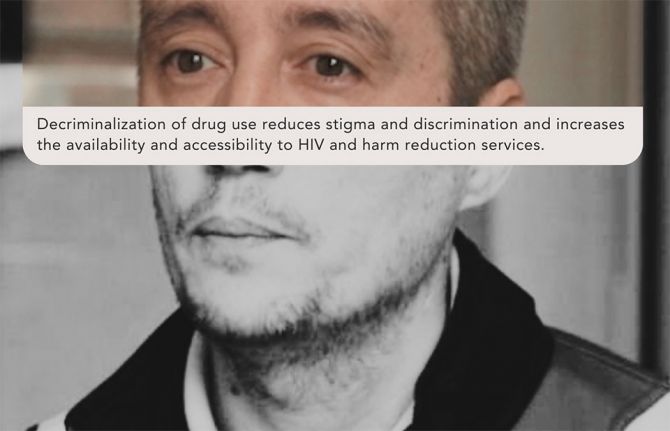
Press Statement
UNAIDS urges scaling up of evidence-based services to address the transmission of HIV and viral hepatitis among people who use drugs
14 March 2024 14 March 2024VIENNA/GENEVA,14 March 2024—At the 67th meeting of the United Nations Commission on Narcotic Drugs taking place in Vienna, UNAIDS has called for the urgent scaling up of services to prevent new HIV and viral hepatitis infections among people who use drugs. Addressing delegates in her video message, UNAIDS Executive Director, Winnie Byanyima, commended some countries for making progress in implementing evidence-based programmes but called for bolder action.
“Gathered here are leaders whose decisions can save and transform lives, tackle social exclusion, and protect public health for everyone. As leaders you can deliver on the shared pledge to end AIDS as a public health threat by 2030 – if all people can secure the HIV prevention, testing, treatment and care services they need. To end AIDS we need to ensure that no one is excluded,” said Ms Byanyima.
Since the 2019 Ministerial Declaration of the United Nations Commission on Narcotic Drugs (CND) there has been some progress in a rebalancing of drug policy towards public health. Several countries have moved towards a more public health-based approach to drug use, with some, such as Ghana, decriminalizing all personal drug use. UNAIDS is supporting Brazil in engaging transgender women in harm reduction programming.
The context of the COVID-19 response led some countries to increase the availability of take-home doses of opioid agonist maintenance therapy, such as in Vietnam. Communities have been central to progress in programmes and policy reforms; in Kenya, Tanzania and Uganda peer groups have been instrumental in delivering harm reduction interventions, law enforcement training sessions and awareness-raising initiatives, including women-centred harm reduction services in Kenya.
But progress remains piecemeal. Services such as needle-syringe programmes, and opioid agonist maintenance therapy, crucial for reducing HIV and other health risks among people who inject drugs, only exist in around 50% of countries. In 2019, UNAIDS reported that only 1% of people who inject drugs had access to recommended harm reduction services, and since then no additional country has reported achieving recommended levels of coverage.
Too often, laws and policies continue to exacerbate exclusion, and people who use drugs are today seven times more likely to be living with HIV than other adults. Drug possession for personal use is still criminalized in 145 countries – with 34 countries retaining the death penalty. The stigma, and outright fear, that this exacerbates is driving people away from vital health services.
Attending the meeting in Vienna, UNAIDS Deputy Executive Director, Christine Stegling said:
“We know that drug prohibition has failed. Punitive drug laws and law enforcement practices create significant barriers for people who inject drugs to access a range of services, increasing their risk of acquiring HIV and reducing their access to services. To protect public health, we need to decriminalize possession of drugs for personal use, we need to significantly scale up harm reduction service provision, and we need to make sure that communities of people who use drugs are adequately resourced and in the lead in the response.”
UNAIDS
The Joint United Nations Programme on HIV/AIDS (UNAIDS) leads and inspires the world to achieve its shared vision of zero new HIV infections, zero discrimination and zero AIDS-related deaths. UNAIDS unites the efforts of 11 UN organizations—UNHCR, UNICEF, WFP, UNDP, UNFPA, UNODC, UN Women, ILO, UNESCO, WHO and the World Bank—and works closely with global and national partners towards ending the AIDS epidemic by 2030 as part of the Sustainable Development Goals. Learn more at unaids.org and connect with us on Facebook, Twitter, Instagram and YouTube.
Watch

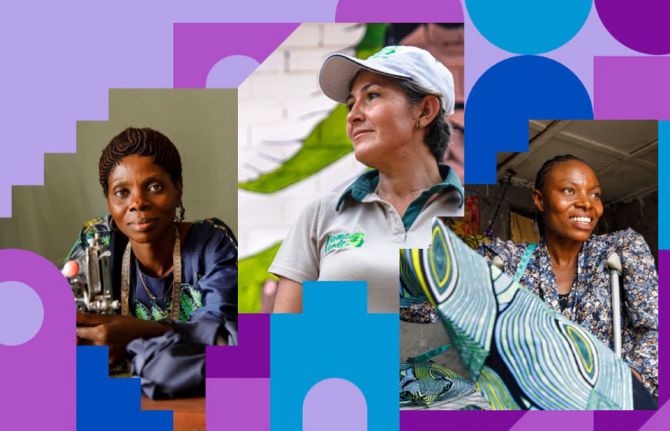
Press Statement
On International Women’s Day, UNAIDS calls for protecting women’s rights to protect their health
06 March 2024 06 March 2024GENEVA, 6 March 2024— Ahead of International Women’s Day, celebrated on 8 March, UNAIDS is calling for the protection of women’s rights to protect their health.
The world is way off track to meet the gender, equality and HIV targets that are part of the Sustainable Development Goals. At the current rate of progress, it will take an estimated 300 years to end child marriage, 140 years for women to be represented equally in positions of power and leadership in the workplace, and 47 years to achieve equal representation in national parliaments.
In addition, around the world at least five women or girls are killed every hour by someone in their own family. One in three women worldwide experience sexual or gender-based violence.
Women who experience violence are more at risk of acquiring HIV. This risk is heightened for the 600 million women and girls who live in the world’s conflict-affected countries, facing an increased danger of sexual violence. And in the majority of the world’s poorest countries, the debt crisis is squeezing out investment in education, health, and social protection, particularly hurting women and girls.
Women are further threatened by the organized pushback against women’s rights. “Today, women’s hard-won rights are under a globally coordinated, ruthless attack. Those facing the most vicious attack are already the most marginalized women,” said Winnie Byanyima, Executive Director of UNAIDS. “The injustices faced by women are not natural disasters to prepare for, like hurricanes or storms. They are man-made, and, as such, we can unmake them.”
The good news is that across the world, women and girls are leading struggles for equality and rights. Women are standing up against oppression in their homes, workplaces, and communities. Women’s movements are providing direct support to women and girls who face violence, and marching and striking for equality. To protect women’s rights, it is vital to support and resource these community organizations, civil society groups and women’s organizations—the frontline defenders of those rights.
Like justice, health is never given, it is won.
UNAIDS’ call this International Women’s Day, is to protect women and girls’ health, protect women and girls’ rights. In doing so, the world will end AIDS, and will overcome the inequalities driving it.
UNAIDS
The Joint United Nations Programme on HIV/AIDS (UNAIDS) leads and inspires the world to achieve its shared vision of zero new HIV infections, zero discrimination and zero AIDS-related deaths. UNAIDS unites the efforts of 11 UN organizations—UNHCR, UNICEF, WFP, UNDP, UNFPA, UNODC, UN Women, ILO, UNESCO, WHO and the World Bank—and works closely with global and national partners towards ending the AIDS epidemic by 2030 as part of the Sustainable Development Goals. Learn more at unaids.org and connect with us on Facebook, Twitter, Instagram and YouTube.
Watch Winnie Byanyima's message

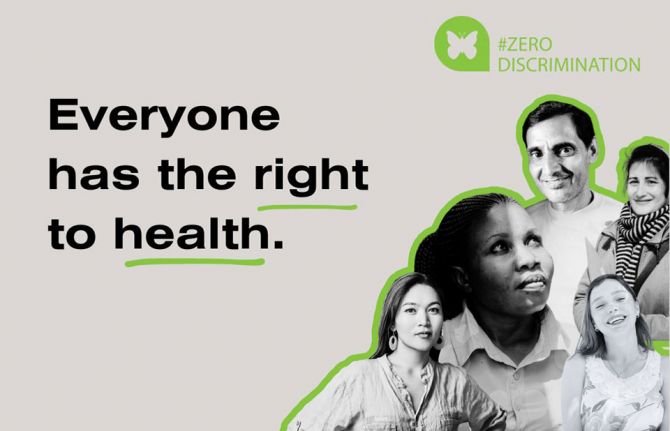
Press Statement
On the 10th anniversary of Zero Discrimination Day UNAIDS calls for the protection of human rights as a path to protecting health for all
27 February 2024 27 February 2024GENEVA, 27 February 2024—Zero Discrimination Day was established by UNAIDS ten years ago to advance equality and fairness for everyone regardless of gender, age, sexuality, ethnicity or HIV status. However, progress is in peril.
Attacks on the rights of women and girls, of LGBTQ+ people, and of other marginalized communities are on the rise. And when laws, policies, practices or norms enshrine punishment, discrimination or stigma for people because they are women, or are LGBTQ+, or are migrants, or sex workers, or use drugs, the results lead to failing public health as these communities are pushed away from vital health and social services.
“The attacks on rights are a threat to freedom and democracy and are harmful to health. Stigma and discrimination obstruct HIV prevention, testing, treatment and care, and hold back progress towards ending AIDS by 2030,” said Winnie Byanyima, Executive Director of UNAIDS. “It is only by protecting everyone’s rights that we can protect everyone’s health.”
There has been progress. At the start of the AIDS pandemic 40 years ago, two thirds of countries in the world criminalized LGBTQ+ people, today two-thirds of countries do not.
38 countries around the world have pledged to end HIV-related stigma and discrimination and today 50 million more girls are in school than in 2015.
To continue this progress UNAIDS urges support for women’s movements and movements for the rights of LGBTQ+ people, for racial justice, for economic justice, for climate justice, and for peace. As communities across the world stand up for rights, the United Nations is not only on their side but by their side.
On this Zero Discrimination Day (1 March), and across the whole month of March, events and activities will remind the world of this vital lesson and call to action: by protecting everyone’s rights, we can protect everyone’s health.
“Through upholding rights for all, we will be able to achieve the Sustainable Development Goals, and to secure a safer, fairer, kinder, and happier world – for everyone,” added Ms Byanyima.
UNAIDS
The Joint United Nations Programme on HIV/AIDS (UNAIDS) leads and inspires the world to achieve its shared vision of zero new HIV infections, zero discrimination and zero AIDS-related deaths. UNAIDS unites the efforts of 11 UN organizations—UNHCR, UNICEF, WFP, UNDP, UNFPA, UNODC, UN Women, ILO, UNESCO, WHO and the World Bank—and works closely with global and national partners towards ending the AIDS epidemic by 2030 as part of the Sustainable Development Goals. Learn more at unaids.org and connect with us on Facebook, Twitter, Instagram and YouTube.
Watch: By protecting everyone’s rights, we can protect everyone’s health
Winnie Byanyima on Zero Discrimination Day
Watch: Rights for All means Health for All


Press Statement
UNAIDS Executive Director Winnie Byanyima responds to the passage of the Human Sexual Rights and Ghanaian Family Values Bill in Ghana’s parliament
28 February 2024 28 February 2024Responding to the passage of the Human Sexual Rights and Ghanaian Family Values Bill in Ghana’s parliament, UNAIDS Executive Director Winnie Byanyima said:
“The Human Sexual rights and Ghanaian Family Values Bill, a private member’s bill passed by parliament, has not yet become a law in Ghana.
If the bill does become a law, it will affect everyone.
Ghana is respected as a stable country where the rule of law prevails, a member of the Human Rights Council, and a global leader in fighting inequality. African values and principles of Ubuntu, dignity, non-discrimination, equality, empathy, protection from violence and care for each other shaped Ghana’s independence struggles, and have continued to be at the heart of Ghana’s society and constitutional democracy. Approaches rooted in inclusion of all people have been crucial to Ghana’s progress in the HIV response. To achieve the goal of ending AIDS as a public health threat by 2030, it is vital to ensure that everyone has equal access to essential services without fear, stigma or discrimination, and that providers of life-saving HIV prevention, testing, treatment and care services are supported in their work.
If Human Sexual rights and Ghanaian Family Values Bill becomes a law, it will exacerbate fear and hatred, could incite violence against fellow Ghanaian citizens, and will negatively impact on free speech, freedom of movement and freedom of association.
If it becomes law, it will obstruct access to life-saving services, undercut social protection, and jeopardize Ghana’s development success.
Evidence shows that punitive laws like this Bill are a barrier to ending AIDS, and ultimately undermine everyone’s health.”
UNAIDS
The Joint United Nations Programme on HIV/AIDS (UNAIDS) leads and inspires the world to achieve its shared vision of zero new HIV infections, zero discrimination and zero AIDS-related deaths. UNAIDS unites the efforts of 11 UN organizations—UNHCR, UNICEF, WFP, UNDP, UNFPA, UNODC, UN Women, ILO, UNESCO, WHO and the World Bank—and works closely with global and national partners towards ending the AIDS epidemic by 2030 as part of the Sustainable Development Goals. Learn more at unaids.org and connect with us on Facebook, Twitter, Instagram and YouTube.
Region/country

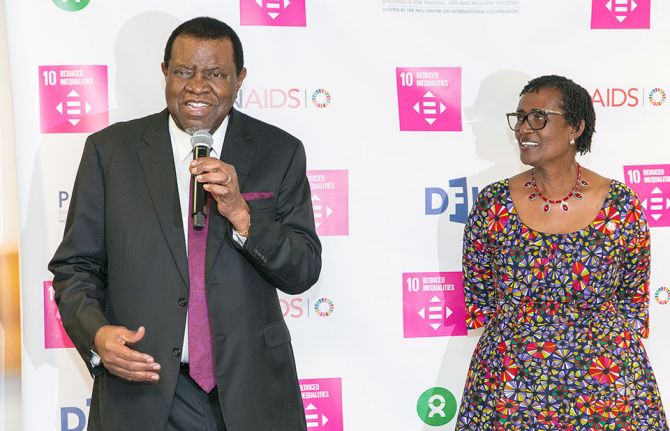
Press Statement
UNAIDS mourns the passing of Hage Geingob, President of Namibia
05 February 2024 05 February 2024GENEVA, 5 February 2024—It is with profound sadness that UNAIDS learns of the passing of Dr Hage G. Geingob, President of the Republic of Namibia. President Geingob was a distinguished leader, a tireless advocate for social justice, and a steadfast supporter of efforts to end AIDS.
The Executive Director of UNAIDS, Winnie Byanyima, expressed her deep condolences, stating, "I am deeply saddened by the news of the passing of President Geingob. He was a true people’s leader, a leader I admired and whose guidance I benefitted from. My heart goes out to his family, especially his wife Monica Geingos, the First Lady of Namibia. Africa has lost a giant son. May he rest in peace.”
President Geingob was not only a statesman who was instrumental in the anti-apartheid movement, he was also a compassionate leader who was dedicated to improving the health and wellbeing of the people of Namibia and around the world. Most recently he proposed doubling the value of the cash transfers the Government of Namibia gives monthly to poor and vulnerable Namibians. He was a pan-Africanist leader who was committed to peace, democracy and a united Africa.
President Geingob's dedication to addressing the challenges posed by HIV and to fight inequality were evident throughout his tenure. Under his leadership, Namibia made significant strides in the fight against the HIV epidemic, creating a supportive legal and policy environment.
He positioned the Government of Namibia among the global AIDS leaders, funding more than 70% of the country’s HIV care and treatment from domestic resources. He helped lead global efforts to accelerate actions on Sustainable Development Goal 10 – Reducing Inequalities. Locally, he engaged communities and implemented effective strategies to prevent new infections and provide care and support to people affected by the virus.
UNAIDS acknowledges President Geingob's pivotal role in advancing the global AIDS response, both through his leadership within Namibia and his contributions to international collaborations. His efforts have left an indelible mark on the fight against AIDS, and his vision of ending AIDS in Namibia and across the world will continue to inspire the work of UNAIDS and its partners.
The entire UNAIDS family extends its deepest sympathies to his family, friends, and the people of Namibia during this difficult time. We honour President Geingob's memory and remain steadfast in our commitment to ensure that the progress achieved in the AIDS response continues to benefit people most in need.
UNAIDS
The Joint United Nations Programme on HIV/AIDS (UNAIDS) leads and inspires the world to achieve its shared vision of zero new HIV infections, zero discrimination and zero AIDS-related deaths. UNAIDS unites the efforts of 11 UN organizations—UNHCR, UNICEF, WFP, UNDP, UNFPA, UNODC, UN Women, ILO, UNESCO, WHO and the World Bank—and works closely with global and national partners towards ending the AIDS epidemic by 2030 as part of the Sustainable Development Goals. Learn more at unaids.org and connect with us on Facebook, Twitter, Instagram and YouTube.
Region/country

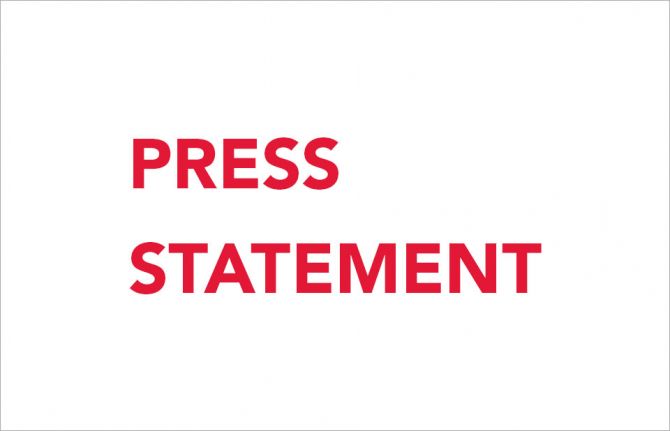
Press Statement
UNAIDS welcomes Jamaica’s expansion of protections against gender-based violence
22 January 2024 22 January 2024Domestic Violence (Amendment) Act 2023 to Protect Women, Girls, Boys, and Men comes into effect
GENEVA, 22 January 2024—UNAIDS welcomes Jamaica’s expansion of protections against gender-based violence as the Domestic Violence (Amendment) Act comes into effect on 22 January 2024.
The amendment will help survivors of physical and mental abuse from persons they reside with or are involved with in an intimate or familial relationship. Amongst other changes, the amendment increases the categories of people who can apply for a protection order for an affected person. For affected children, it enables appropriate public officials to apply for a protection order. It also expands the ability of the court to take actions necessary to protect people.
Alongside the new legal changes, the Government of Jamaica has also committed to continuing to implement other policies to support survivors including a gender-based violence helpline, legal support, shelters, intervention centres at police stations, and special training for members of the police force and other service providers.
Luisa Cabal, UNAIDS Regional Director for Latin America and the Caribbean, applauded the political commitment of the Government and the Parliament of Jamaica, led by Gender Affairs Minister, Olivia Grange and the other powerful female colleagues. Ms Cabal highlighted the importance of addressing the challenges in enforcement as well as policies, and noted the critical role of the courts, police, other law enforcement personnel and civil society partners in tackling gender-based violence in all its forms for all women and girls in all their diversity.
Welcoming Jamaica’s important step forward, Winnie Byanyima, UNAIDS Executive Director, urged a stepping up of action worldwide to tackle gender-based violence. “UNAIDS welcomes the commitments made by Jamaica to expand protections to tackle gender-based violence. Determined action is essential across the Caribbean and Latin America, and across the world, to break the vicious cycle of violence, abuse and inequality. Survivors must be heard, and justice must be done. To protect women and girls' health, it is essential to protect women and girls' human rights,” said Ms Byanyima.
UNAIDS
The Joint United Nations Programme on HIV/AIDS (UNAIDS) leads and inspires the world to achieve its shared vision of zero new HIV infections, zero discrimination and zero AIDS-related deaths. UNAIDS unites the efforts of 11 UN organizations—UNHCR, UNICEF, WFP, UNDP, UNFPA, UNODC, UN Women, ILO, UNESCO, WHO and the World Bank—and works closely with global and national partners towards ending the AIDS epidemic by 2030 as part of the Sustainable Development Goals. Learn more at unaids.org and connect with us on Facebook, Twitter, Instagram and YouTube.
Contact
UNAIDS Latin America and the CaribbeanDaniel de Castro
tel. +507 6998 3175
decastrod@unaids.org
